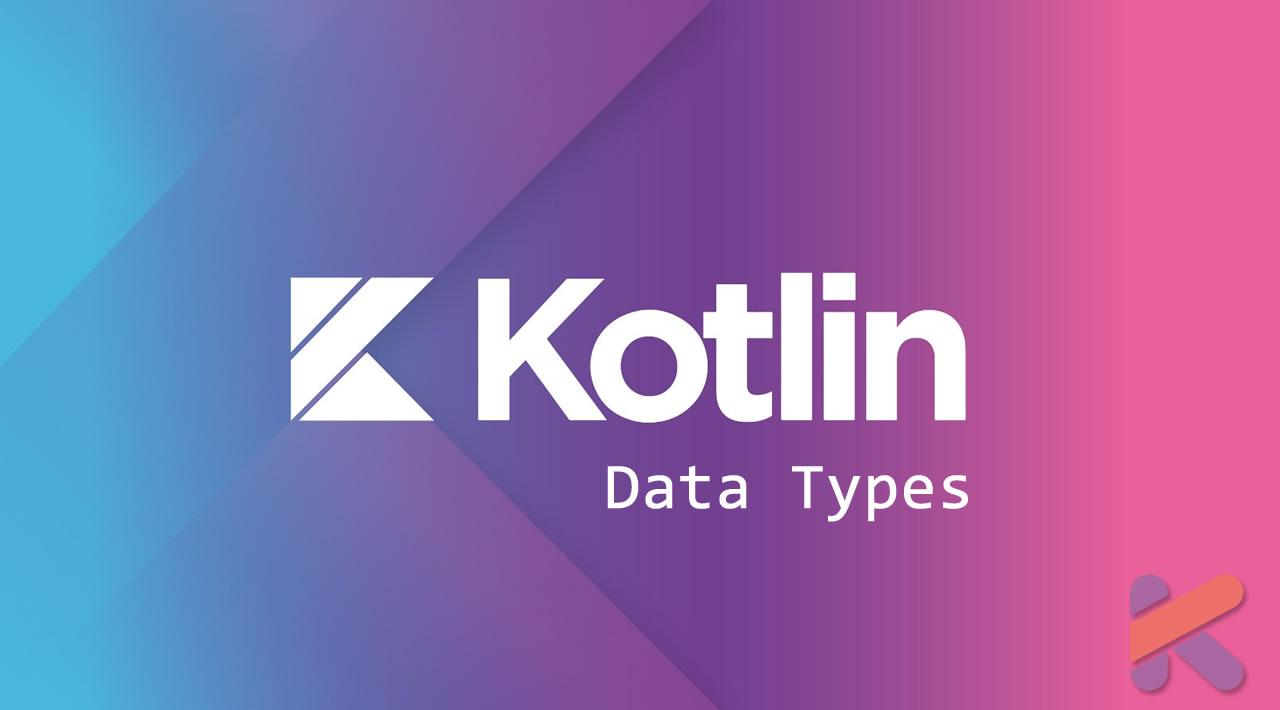Kotlin Tutorial for Beginners - Kotlin Data Types
The most fundamental data type in Kotlin is Primitive data type and all others are reference types like array and string. Java needs to use wrappers (java.lang.Integer) for primitive data types to behave like objects but Kotlin already has all data types as objects.
There are different data types in Kotlin
- Integer Data type
- Floating-point Data Type
- Boolean Data Type
- Character Data Type
Integer Data Type:
These data types contain the contain integer values.

Let’s write a program to represent all the integer data types and their min and max value.
// Kotlin code
fun main(args : Array<String>) {
var myint = 35
//add suffix L for long integer
var mylong = 23L
println("My integer ${myint}")
println("My long integer ${mylong}")
var b1: Byte = Byte.MIN_VALUE
var b2: Byte = Byte.MAX_VALUE
println("Smallest byte value: " +b1)
println("Largest byte value: " +b2)
var S1: Short = Short.MIN_VALUE
var S2: Short = Short.MAX_VALUE
println("Smallest short value: " +S1)
println("Largest short value: " +S2)
var I1: Int = Int.MIN_VALUE
var I2: Int = Int.MAX_VALUE
println("Smallest integer value: " +I1)
println("Largest integer value: " +I2)
var L1: Long = Long.MIN_VALUE
var L2: Long = Long.MAX_VALUE
println("Smallest long integer value: " +L1)
println("Largest long integer value: " +L2)
}
Output:
My integer 35
My long integer 23
Smallest byte value: -128
Largest byte value: 127
Smallest short value: -32768
Largest short value: 32767
Smallest integer value: -2147483648
Largest integer value: 2147483647
Smallest long integer value: -9223372036854775808
Largest long integer value: 9223372036854775807
Floating-Point Data Type:
These data type used to store decimal value or fractional part.

Let’s write a program to represent both the floating-point data type and their min and max value.
// Kotlin code
fun main(args : Array<String>) {
var myfloat = 54F // add suffix F for float
println("My float value ${myfloat}")
var F1: Float = Float.MIN_VALUE
var F2: Float = Float.MAX_VALUE
println("Smallest Float value: " +F1)
println("Largest Float value: " + F2)
var D1: Double = Double.MIN_VALUE
var D2: Double = Double.MAX_VALUE
println("Smallest Double value: " + D1)
println("Largest Double value: " + D2)
}
Output:
My float value 54.0
Smallest Float value: 1.4E-45
Largest Float value: 3.4028235E38
Smallest Double value: 4.9E-324
Largest Double value: 1.7976931348623157E308
Boolean Data Type:
Boolean data type represents only one bit of information either true or false. The Boolean type in Kotlin is the same as in Java. These operations disjunction (||) or conjunction (&&) can be performed on boolean types.

Let’s write a program to represent the boolean data types.
// Kotlin code
fun main(args : Array<String>){
if (true is Boolean){
print("Yes,true is a boolean value")
}
}
Output:
Yes, true is a boolean value
Character Data Type:
Character data type represents the small letters(a-z), Capital letters(A-Z), digits(0-9) and other symbols.

Let’s write a program to represent character data type.
// Kotlin code
fun main(args : Array<String>){
var alphabet: Char = 'C'
println("C is a character : ${alphabet is Char}")
}
Output:
C is a character : true
#kotlin #mobileapps #java
